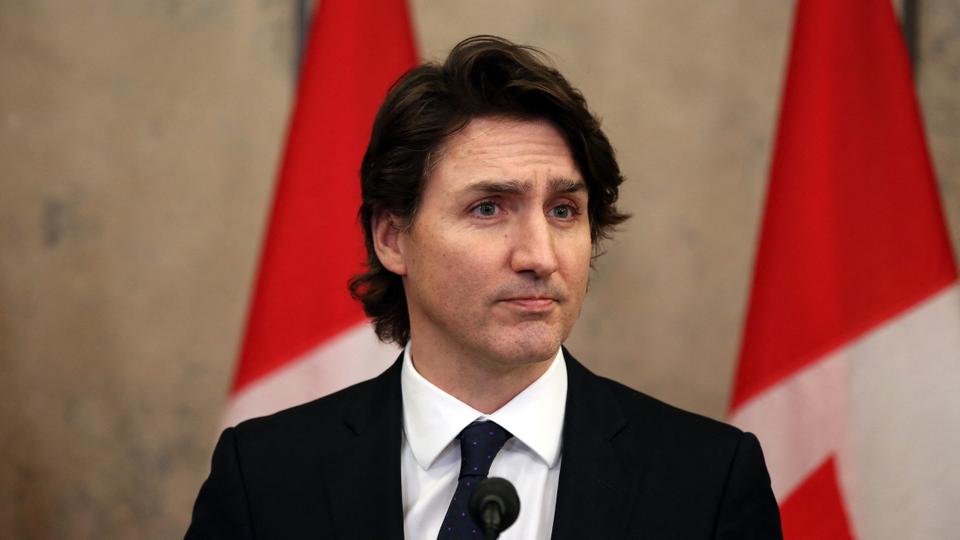PM Justin Trudeau activates rarely used 1988 Emergencies Act in an effort to end protests that have shut some border crossings and paralysed parts of the capital.

Canadian Prime Minister Justin Trudeau has invoked emergency powers to try to quell the protests by truck drivers and others who have paralysed capital Ottawa and blocked border crossings in anger over the country’s Covid-19 restrictions.
Trudeau ruled out using the military and said on Monday that the emergency measures "will be time-limited, geographically targeted, as well as reasonable and proportionate to the threats they are meant to address."
"The blockades are harming our economy and endangering public safety," Trudeau told a news conference. "We cannot and will not allow illegal and dangerous activities to continue."
"This is the biggest, greatest, most severe test Trudeau has faced," said Wesley Wark, a University of Ottawa professor and national security expert.
Invoking the Emergencies Act would allow the federal government to declare the Ottawa protest illegal and clear it out by such means as towing vehicles, Wark said.
It would also enable the government to make greater use of the Royal Canadian Mounted Police, the federal police agency.
"Consider yourselves warned," Deputy Prime Minister Chrystia Freeland said. "Send your rigs home,"
Freeland,
who is also the finance minister, said the government will also broaden
its anti-money-laundering regulations to target crowd-funding sites
that are being used to support the illegal blockades.
It marked only the second time in Canadian history such powers have been invoked in peacetime, and came as hundreds of big rigs still clogged the streets of the capital Ottawa, as well as two border crossings.
The Emergencies Act was previously used by Trudeau's father, former prime minister Pierre Trudeau, during the October Crisis of 1970.
It saw troops sent to Quebec to restore order after the kidnappings by militant separatists of a British trade attache and a Quebec minister, Pierre Laporte, who was found strangled to death in the trunk of a car.
'Freedom Convoy'
For the past two weeks, hundreds and sometimes thousands of protesters in trucks and other vehicles have clogged the streets of Ottawa, the capital, railing against vaccine mandates and other virus precautions and condemning Trudeau's Liberal government.
Members of the self-styled "Freedom Convoy" have also blockaded various US-Canadian border crossings, though the busiest and most important — the Ambassador Bridge connecting Windsor, Ontario, to Detroit — was reopened over the weekend.
Doug Ford, the Conservative Premier of Ontario, which is Canada’s most populous province and includes Ottawa and Windsor, expressed support for emergency action before the meeting with Trudeau, saying: "We need law and order. Our country is at risk now."
But at least three other provincial leaders — from Quebec, Alberta and Saskatchewan — warned the prime minister against taking such a step, some of them cautioning that it could inflame an already dangerous situation.
"At this point, it would not help the social climate. There is a lot of pressure, and I think we have to be careful," said Quebec Premier Francois Legault. "It wouldn't help for the polarisation."
The demonstrations have inspired similar convoys in France, New Zealand and the Netherlands. US authorities have said that truck convoys may be in the works in the United States.
The Ambassador Bridge, which carries 25 percent of all trade between the two countries, reopened to traffic late Sunday night.
The interruption in the flow of goods forced General Motors, Ford, Toyota and other automakers to close plants or curtail production on both sides of the border.
Truckers say 'will hold line'
One of the protest organizers in Ottawa vowed not to back down in the face of pressure from the government.
“There are no threats that will frighten us. We will hold the line," Tamara Lich said, though several truckers did agree to move their rigs out of a residential area and consolidate them on Parliament Hill to avoid disturbing people living in the neighborhood.
Cadalin Valcea, a truck driver from Montreal protesting for more than two weeks, said he will move only if forced: "We want only one thing: to finish with this lockdown and these restrictions."
The protests have drawn support from right-wing extremists and armed citizens in Canada, and have been cheered on in the US by Fox News personalities and conservatives such as Donald Trump.
Other conservatives pushed Trudeau to simply drop the pandemic mandates.
Over the past weeks, authorities have hesitated to move against the protesters around the country. Local officials cited a lack of police manpower and fears of violence, while provincial and federal authorities disagreed over who had responsibility for quelling the unrest.
Many of Canada’s Covid-19 restrictions, such as mask rules and vaccine passports for getting into restaurants and theaters, are already falling away as the omicron surge levels off.
Pandemic restrictions have been far stricter in Canada than in the US, but Canadians have largely supported them. The vast majority of Canadians are vaccinated, and the Covid-19 death rate is one-third that of the United States.
Source: TRTWorld and agencies
Social media is bold.
Social media is young.
Social media raises questions.
Social media is not satisfied with an answer.
Social media looks at the big picture.
Social media is interested in every detail.
social media is curious.
Social media is free.
Social media is irreplaceable.
But never irrelevant.
Social media is you.
(With input from news agency language)
If you like this story, share it with a friend!
We are a non-profit organization. Help us financially to keep our journalism free from government and corporate pressure












0 Comments